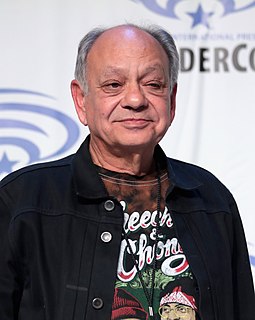A Quote by Joyce Carol Oates
A writer can't subtract or excise any of his/her past because doing so would erase the work produced during that time.
Related Quotes
I love the beautiful distractions of the world - television and movies, video games, the Internet in general. But I try really hard to avoid them, because they don't help me become a better writer. They subtract hours from my day. And a writer's main currency is time. Time to daydream, time to walk and think, time to sit and do the work.
Love your material. Nothing frightens the inner critic more than the writer who loves her work. The writer who is enamored of her material forgets all about censoring herself. She doesn't stop to wonder if her book is any good, or who will publish it, or what people will think. She writes in a trance, losing track of time, hearing only her characters in her head.
Marrying the right girl is even more imperative today than it was when I was 23 years old because it's so much harder to get on as an imaginative writer like me now. You need to have somebody who believes in what you're doing and who never is skeptical about what you're doing. My wife thought it was a great thing for me to be a writer because in practical terms it freed her to do what she wanted to do, which was work.
What would happen if history could be rewritten as casually as erasing a blackboard? Our past would be like the shifting sands at the seashore, constantly blown this way or that by the slightest breeze. History would be constantly changing every time someone spun the dial of a time machine and blundered his or her way into the past. History, as we know it, would be impossible. It would cease to exist.
She wondered how people would remember her. She had not made enough to spread her wealth around like Carnegie, to erase any sins that had attached to her name, she had failed, she had not reached the golden bough. The liberals would cheer her death. They would light marijuana cigarettes and drive to their sushi restaurants and eat fresh food that had traveled eight thousand miles. They would spend all of supper complaining about people like her, and when they got home their houses would be cold and they'd press a button on a wall to get warm. The whole time complaining about big oil.
By this point, it was clear she wasn't interested in continuing the relationship. What publication on earth would continue a relationship with a writer who would refuse to discuss her work with her editors? What publication would continue to publish a writer who attacked it on TV? What publication would continue to publish a writer who lied about it - on TV and to a Washington Post reporter? ... It's true: Ann is fearless, in person and in her writing. But fearlessness isn't an excuse for crappy writing or crappier behavior.
I also think within the scene, a specific scene - if I were to play a part that I played 10 years ago now, my interpretation of that scene would be totally different. I would be making different choices. Because I can't somehow subtract all of the experiences that I've had in my life. And it's fascinating to see, because somewhere I'm very reflective in that. You know, I've been playing basically actually close to 40 years old, so I'm somewhere lost in age in this movie. But it's been fascinating to see that I can't subtract that time.
One of the most useful parts of my education as a writer was the practice of reading a writer straight through - every book the writer published, in chronological order, to see how the writer changed over time, and to see how the writer's idea of his or her project changed over time, and to see all the writer tried and accomplished or failed to accomplish.
The question that comes up a lot is, if you had the chance to erase your memory of something specific, what would you erase? And my answer has always been, I wouldn't erase anything, personally. In some ways, I almost wouldn't want to erase anything from the public consciousness, either, for the same reason.






































